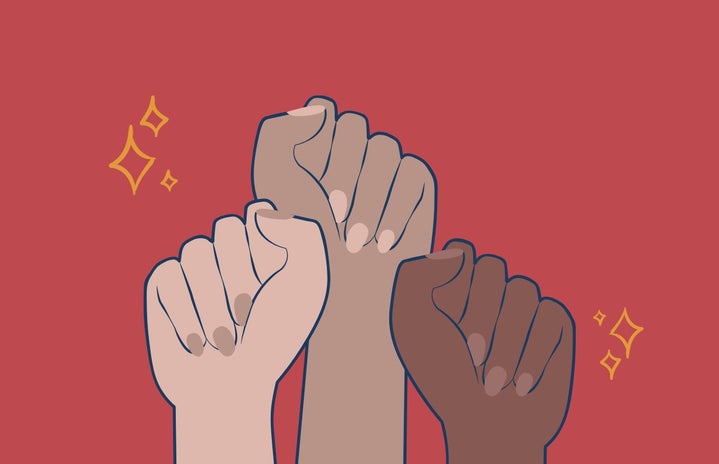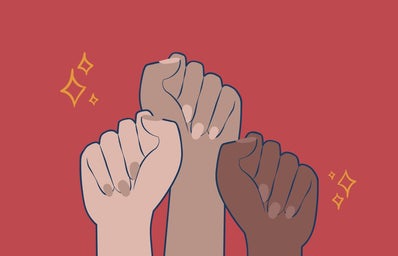Intersectionality is represented as an analytic framework that attempts to identify how interlocking systems of power impact those who are most marginalized in society.
Sometime in every young girl’s life, there will be a feminist awakening. For me it might have been when my middle school teacher told me my shorts were too short (despite wearing leggings underneath), or reading about the “feminist waves” in my history classes, or maybe when I began to feel objectified by my male friends at only age 13. Through hundreds of discussions with prominent women in my life such as my friends, my mother, my grandmother, and even my teachers, I molded my own definition of feminism. Every woman goes through her own unique experiences, and while at I didn’t know it at the time, my perception was very limited. For one, the majority of the experiences I had knowledge of—whether my own or from my friends and family—were from mostly white, middle-class, straight women. Not surprising, this is who I mostly grew up around. Even from the experiences from friends who weren’t white, our experiences were from first-world, middle-class lives. My feminist knowledge lacked intersectionality.
Each and every one of our experiences are valid and are important to the feminist experience, thus ignorance to other women’s experiences are harmful. In reality, my experience is a small portion of the overall feminist movement. For example, I’ve become aware that not all women, are biologically women. While I personally stand up for proper reproductive health rights, I should be aware that my reproductive system may be different from other women. Based on our race, class, gender, sexual orientation, age, culture, education, and so on, our experiences vary widely. Sometimes they intersect (haha INTERSECTional, get it?!).
The term sometimes seems to bother others. Some even get defensive, worrying that if their feminism becomes intersectional—and thus, complicated—they’ll become the loathed “social justice warrior”. Or perhaps that if one was to focus on other experiences, it would take away from their own. However, there is nothing bad that can come from being inclusive and aware of different experiences. Nobody is expecting perfection! Being actively aware and making the effort is the first step.
We can apply intersectionality in our everyday lives much more than we think. An example of keeping an intersectional mindset came over me while I was brainstorming possible article ideas for myself to write this week. I pondered on my personal experiences using Tinder for a temporary amount of time. When I discussed these ideas with my friends and peers, I, once again, found that my perspective was very limited. While conversing with an African American classmate in one of my quiz sections, she told me about how many men fetishized her race—something I never really experienced. I very quickly found that I don’t know the Tinder experience from the man’s perspective, or the gay perspective, or the transgender perspective. Writing a one-sided, or incomplete, article felt wrong. Thus, I decided to postpone the article until I collected enough information about different possible experiences to make an “educated” assumption about the infamous dating app.
I encourage you to maintain an intersectional mindset as well in your everyday routine!


